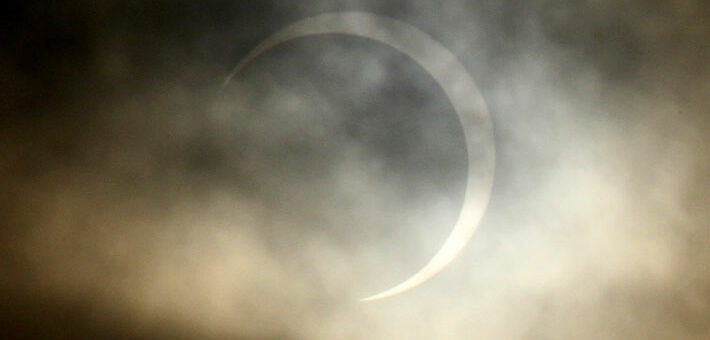Commentary on Psalm 80:1-7, 17-19
We do not know how to pray as a community, together, for the community.
Psalm 80 is a National Lament, and the very idea of the United States or really any other modern nation praying as a nation doesn’t make much sense, comprised as we are of people of different faiths, and of no faith at all. But even those of us with a shared faith: prayer has become individualistic, even though we surely realize our problems, and our hope, rest in a more corporate reality.
Psalm 80 envisions the northern kingdom of Israel in panic mode over the impending invasion of the Assyrian juggernaut. The fledgling kingdom doesn’t have a prayer — or all they have is a prayer.
What they pray is intriguing. God is asked to “give ear,” to “shine forth,” to “let your face shine.” The backdrop of their plea is they quite rightly sense they are out of sorts with God. They understandably, wrongly, and yet wisely assume that God is “angry with your people’s prayers.” We know God doesn’t get angry with prayers, although we do recall Jesus rather irreverently and rudely overturning tables and hollering at people who were praying — but not really, or at least not in sync with God’s heart. Oh, Jeremiah pretty much said the same thing not too long after Psalm 80 was composed.
The situation of the people is complicated. Yes, they have squandered their deep bond with God. But at the same time, they are the targets of derision. They feel like they are “the scorn of our neighbors.” Israel is mocked by the nations. For us, a more subtle interpretation is required, since the nation that mocks our faith today is … well, it’s our own nation!
Quite amazingly, the Psalm’s wording suggests that it is God — “You make us the scorn of our neighbors.” We cannot be sure how this plays out. It may well be that in our day, Christianity receives much scorn from an agnostic, atheistic, and even hostile culture. But it isn’t the case that the Church has been terribly holy and full of orthodox faith and charity. The Church that has become a caricature, even a mockery of what it should be, is the church that is mocked in our day, almost as if the true enemy isn’t external hostility to the faith, but we, ourselves. God, not in harmony with what we’re about, watches and grieves the playing out of anger against God’s own church, and no one understands and gets the cause and effect better than God almighty.
And yet it is God alone who can repair things, or “restore us,” as the Psalm repeats. The restoration asked for involves God’s face shining. The idea that God would at the very least not turn away the divine face from us, shuddering, or blushing, but would continue to look on us is itself hopeful. God continues to see us. Certainly the Israelites hoped for more, probably a military victory or two. But once the kingdom was crushed, and then 150 years later when the exile snuffed out any hope of national grandeur, the presence of God was all that was left — but then the wisest theologians then learned that was enough, and so might we.
We might chuckle a little at the naiveté of this national prayer. Save us! And “then we will never turn back from you.” Well, of course they will, God knows. They were and we are “prone to wander,” although the vow is genuinely passionate when made, and perhaps does yield a little bit of zeal once things have settled down. Memory is the pivot for this. Can we recall when times were tough, when we felt God-forsaken? And then once God is more evidently active, can that recollection fan whatever embers are still glowing of that fire of determination during the time of crisis?
The Psalm holds out great hope for the king at hand. We know in retrospect they were a gallery of rogues, each one a disappointment in some new but boring old way. Yet that hope for the king God could actually use would be the seed of the dream of the Messiah.
And finally, it’s hard not to resonate with the appeal to Joseph in Psalm 80. Joseph here means the tribes in the north. But we cannot help but recall those stunning narratives of Genesis 37-50, especially those profound moments when the brothers come face to face with their brother whom they had treated so callously. He doesn’t give them a second chance. He doesn’t even really forgive them. Instead, he declares that God took their evil and turned it into good. “As for you, you meant evil against me, but God meant it for good” (Genesis 50:20).
Such was the hope for the nation of Israel. Such is the hope for every nation, every people, every community, all of us. This is the yearning of Advent, for the coming of this Lord, the one who gathers up all our good and mistakes and misdeeds and misdirected dreams and weaves them together into God’s good purpose.


November 30, 2014